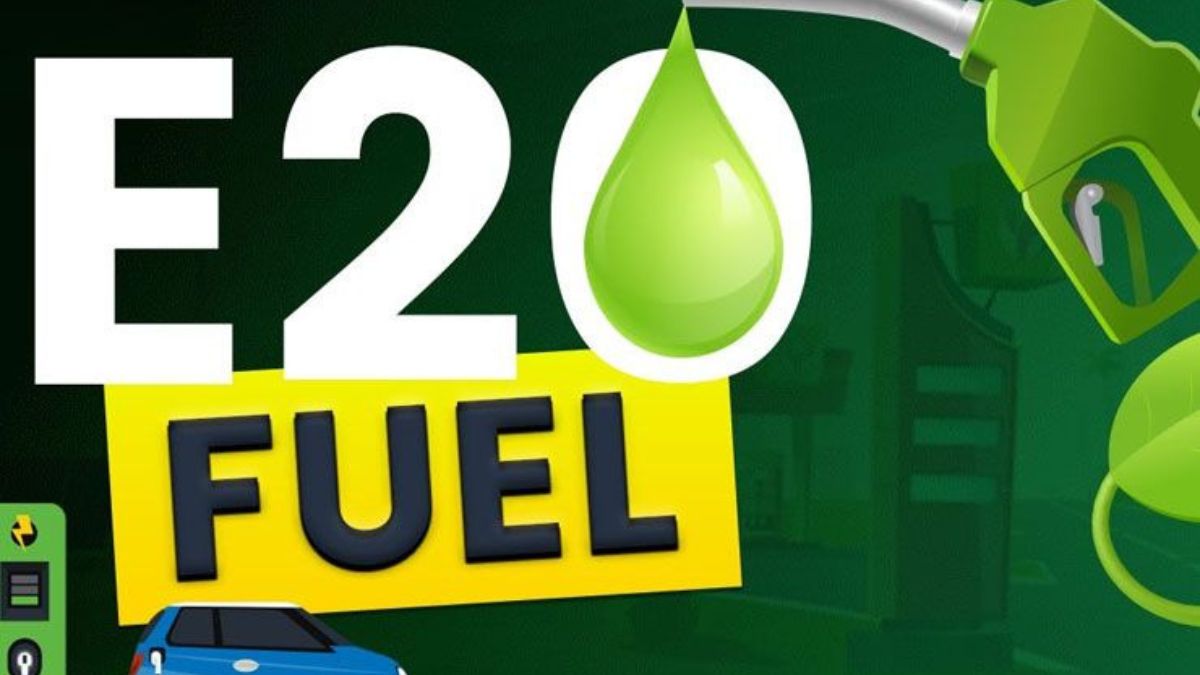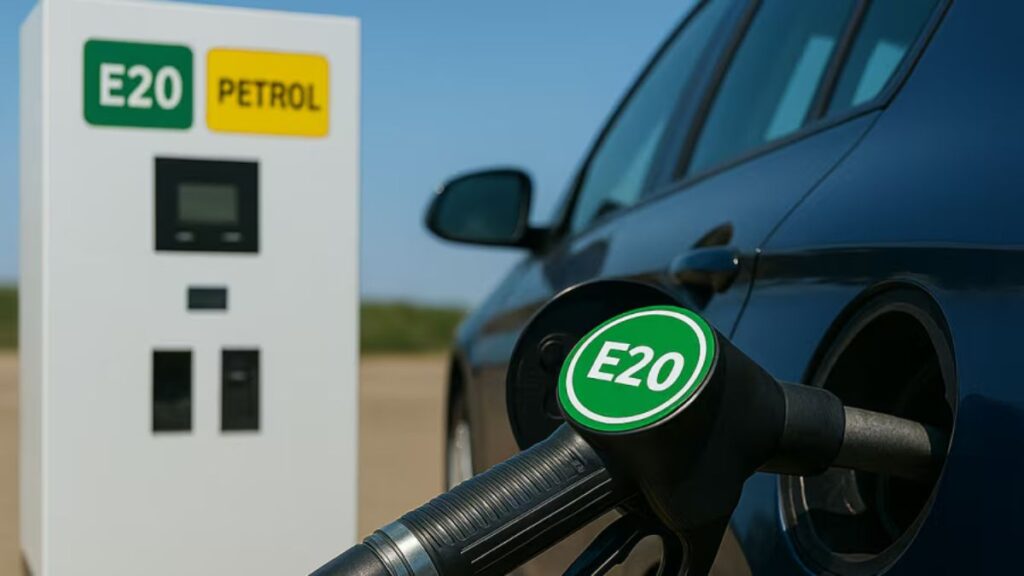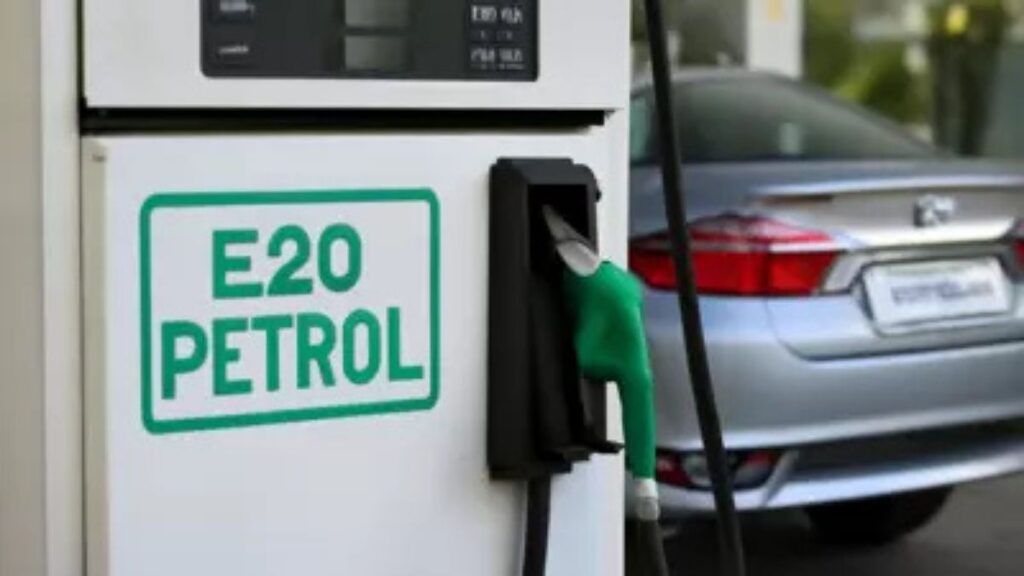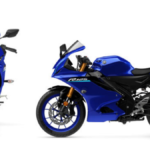
E20 Fuel 2025 marks a revolutionary stride in India’s journey towards cleaner mobility and sustainable energy security. Under the government’s ambitious Ethanol Blended Petrol (EBP) Programme, E20 fuel—petrol blended with 20% ethanol—is being promoted nationwide to reduce carbon emissions, cut crude oil imports, and support farmers by creating a strong demand for homegrown ethanol.
On August 30, 2025, the Government made a game-changing announcement that directly addressed one of the biggest concerns of vehicle owners: using E20 fuel will not void vehicle warranty or affect insurance coverage. This assurance has not only boosted confidence among car buyers and drivers but has also paved the way for faster adoption of eco-friendly fuel. With its economic, agricultural, and environmental benefits, E20 fuel is emerging as a positive force shaping India’s green mobility future.
E20 Fuel: The Future of Sustainable Driving in India
The Government of India, in collaboration with oil companies, automakers, certification agencies like ARAI and iCAT, and regulatory bodies such as BIS, has consistently worked to ensure that all vehicles are compatible with specified blended fuels. This joint effort reflects the national importance of the Ethanol Blended Petrol Programme, which aims to reduce carbon emissions, cut crude oil imports, and boost farmers’ income.
Contrary to myths circulating on social media, officials have confirmed that insurance coverage and vehicle warranties remain completely valid when using E20 fuel. Neither automobile companies nor insurers have issued any advisory against ethanol-blended petrol.
Benefits of E20 Fuel for India’s Economy and Environment

India’s adoption of ethanol-blended petrol is not just an energy initiative—it’s an economic and environmental game changer.
- Massive Forex Savings: At 20% ethanol blending, forex savings are expected to reach around ₹43,000 crore annually.
- Boost to Farmers: Payments to farmers will cross ₹40,000 crore in 2025, as money previously spent on crude oil imports is now directly benefiting rural India. Farmers are now proudly called “Urjadaatas” (energy providers).
- Emission Reductions: Since its inception, the EBP Programme has cut 736 lakh metric tonnes of CO2 emissions, equal to planting 30 crore trees.
- Energy Security: In 11 years, the program has saved ₹1.44 lakh crore in foreign exchange and replaced 245 lakh metric tonnes of crude oil imports.
This sustainable cycle strengthens India’s economy while protecting the environment and supporting farmers.
Engine Performance and Mileage: Myths vs Reality
One of the most common misconceptions about E20 is that it drastically reduces mileage. However, testing on both modern and older vehicles has shown only a marginal drop in fuel economy.
Mileage is influenced more by driving style, vehicle age, tyre condition, and AC usage than by ethanol content. In fact, E20 offers better performance due to ethanol’s higher octane rating (108.5 vs 84.4 for petrol). With RON 95 petrol now available, vehicles enjoy smoother acceleration, better anti-knock properties, and enhanced city driving efficiency.
Additionally, ethanol’s higher heat of vaporization cools intake air, improving volumetric efficiency and engine responsiveness. Far from harming performance, E20 actually supports next-gen high-compression engines.
Addressing Social Media Myths on E20 Fuel

Some misleading social media posts had suggested issues like water ingress in vehicles using ethanol-blended petrol. However, the Oil Marketing Companies (OMCs) and the All India Petroleum Dealers Association (AIPDA) clarified that no such complaints have been reported by customers. Moreover, advisories shared on these claims were quickly withdrawn, as they lacked scientific basis.
This assurance further proves that E20 fuel is safe, reliable, and fully supported by both automakers and petroleum dealers.
Why E20 Fuel is a Win-Win for India
The Ethanol Blended Petrol Programme is modeled on successful international examples, particularly Brazil’s ethanol journey. India’s version has been carefully tested for Indian conditions, ensuring safety, durability, and compatibility.
By adopting E20 fuel, India achieves multiple wins:
- Cleaner Environment – Significant reduction in CO2 emissions.
- Stronger Economy – Reduced dependence on imported crude oil.
- Better Energy Security – Stable domestic energy supply.
- Farmers’ Prosperity – Assured income, reducing agrarian distress.
- Enhanced Vehicle Performance – Higher octane petrol ensures smoother rides.
Final Thoughts
The Government’s clarification that E20 fuel does not void vehicle warranty or insurance is a huge confidence booster for car owners and two-wheeler riders across India. With proven environmental, economic, and performance benefits, ethanol-blended petrol is set to transform the way India drives.
By reducing emissions, cutting import bills, and empowering farmers, E20 fuel truly represents a sustainable, future-ready energy solution for India.
Note: All information and images used in this content are sourced from Google. They are used here for informational and illustrative purposes only.
Frequently Asked Questions (FAQ) on E20 Fuel in India

Q1. Does using E20 fuel void my vehicle’s warranty?
No. The Government of India and automobile manufacturers have clarified that using E20 fuel does not void your vehicle’s warranty. Vehicles are being designed and tested to be fully compatible with ethanol-blended petrol.
Q2. Will my vehicle insurance become invalid if I use E20 fuel?
No. Insurance coverage remains fully valid. Both insurers and the Government have confirmed that E20 fuel usage does not affect motor insurance policies in any way.
Q3. Does E20 fuel reduce vehicle mileage significantly?
Not significantly. Extensive testing on a wide range of vehicles has shown only a marginal drop in fuel economy. Mileage is more dependent on driving habits, vehicle age, maintenance, and tyre condition than on ethanol blending.
Q4. Is E20 fuel safe for my vehicle’s engine?
Yes. Ethanol has a higher octane number (108.5) compared to regular petrol, making it safer for modern high-compression engines. It improves acceleration, prevents knocking, and enhances engine efficiency.
Q5. Are there risks of water contamination in ethanol-blended fuel?
No. Claims about water ingress in vehicles due to E20 fuel are not backed by scientific studies. Oil Marketing Companies (OMCs) and petroleum dealers have confirmed that they have not received complaints from customers on this issue.
Q6. How does E20 fuel benefit farmers and the economy?
E20 adoption diverts money from crude oil imports to Indian farmers, generating approximately ₹40,000 crore in payments to farmers annually. It also saves around ₹43,000 crore in foreign exchange and strengthens India’s energy security.
Q7. What environmental benefits does E20 fuel provide?
E20 fuel reduces carbon emissions significantly. Since the Ethanol Blended Petrol Programme began, it has cut about 736 lakh metric tonnes of CO2 emissions, equivalent to planting 30 crore trees.
Q8. Has India studied global models before adopting E20 fuel?
Yes. The programme has been designed after studying successful ethanol adoption models, especially Brazil’s. It has been thoroughly tested for Indian conditions to ensure safety and performance.
Q9. What improvements in petrol quality have come with E20 blending?
India has steadily raised petrol quality from RON 88 to RON 91 under BS-VI norms. With E20 blending, the quality has further improved to RON 95, offering superior anti-knock properties and smoother performance.
Q10. Is E20 fuel available across India now?
The rollout is being carried out in a phased manner by Oil Marketing Companies (OMCs). Availability is steadily expanding to ensure nationwide adoption without supply issues.







Leave a Reply